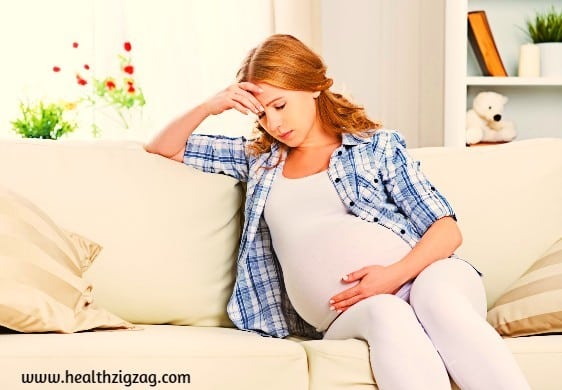
Contents [show]
10 Early Signs Of Pregnancy
Apart from the pregnancy test, do you know what are the most frequent early signs that you are expecting a baby?
The pregnancy tests are, along with a visit to the doctor or gynecologist. The most accurate way to determine whether or not we are expecting a baby. However, several signs can give you a warning about whether or not to go to the pharmacy or make an appointment with the GP. Do you know what are the first most frequent signs of pregnancy? If you still didn’t get pregnant then first you need to know how to get pregnant fast.
Tiredness or fatigue
By itself, fatigue is a difficult detector of a possible pregnancy. Since it is usually more associated with stress or lack of sleep. However, fatigue is usually a heavy companion in these first weeks of pregnancy. If you think you are pregnant, try to fight it by resting more and eating better. Instead of resorting to stimulating drinks, such as caffeine or theine.
Missing menstruation
Although it is the first thing that comes to mind when considering a possible pregnancy. Having a ‘lack’ is not always synonymous with waiting for a baby, at least not exclusively. The irregularities in the menstrual cycle are frequent at any age (in young women but also in those who approach menopause). It can be caused by both stress and hormonal changes or by the fatigue we mentioned earlier.
Read Also: 8 Natural Remedies for Menstrual Cramps (Dysmenorrhea)
Very slight bleeding
Another common symptom that usually follows six or twelve days after conception is bleeding. Very mild, as well as cramps in the lower belly, similar to menstrual cramps. Which may be associated with the implantation of the fertilized egg in the uterine wall. It is called ‘implantation bleeding’.
Sensitive smell and taste
Many women dislike certain foods in the first weeks of pregnancy, which usually disappear from the second trimester. There is no specific list of foods that ‘repel’ pregnant women, although, in the case of odors. It is often the odors we used to find slightly annoying that are now aversive.
Such as strong perfumes, cheeses, or smoke of tobacco both one and the other, slate, and taste. Become more sensitive because of the hormonal changes that the body goes through during pregnancy.
Chest larger or more sensitive to touch
Changes in breast size are another early indicator of pregnancy, manifesting between the first and second week of pregnancy.
Nausea
One of the most annoying and also more obvious symptoms: nausea, morning or not. Usually appears within the second week of conception and lasts for four months or even more. The culprits, in this case, are the hormones again, specifically hCG (also called human chorionic gonadotrophin). A hormone produced by the embryo, which promotes the secretion of progesterone. Enriching the uterus so that it can support the development of the baby.
Want to go to the bathroom frequently
Throughout the pregnancy, also in the first weeks, the growth of the uterus tends to push the bladder. Thereby increasing visits to the bathroom almost without realizing why.
Constipation
Constipation is usually the other side of the coin, also associated with high levels of progesterone in the body. Which slows down the process of digestion and the passage of food through the intestinal tract. Drink water to keep the digestive system active. Eat fiber-rich fruits and vegetables and do exercise to avoid major discomfort in later stages of pregnancy.
Read Also: How to Relieve Constipation Naturally and Quickly?
Mood swings
Mood swings are frequently linked with premenstrual syndrome. The hormone cocktail that escorts the first weeks of pregnancy can also trigger female sensitivity. Causing us to go from laughter to anger without explanation.
Back pains
Also associated with hormonal changes. Back pain usually increases progressively as the pregnancy progresses, as the muscles tend to distend as the body gains weight. Published By Healthzigzag.com




